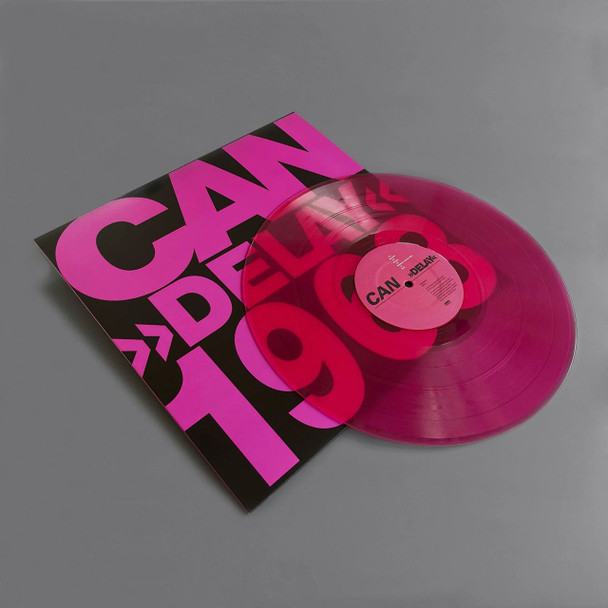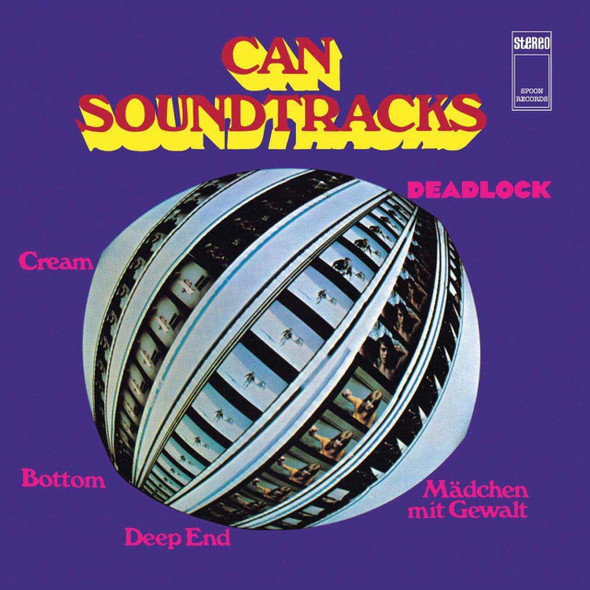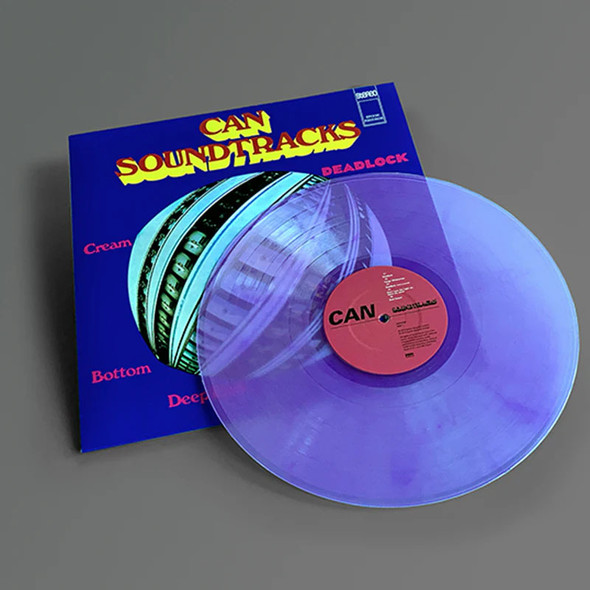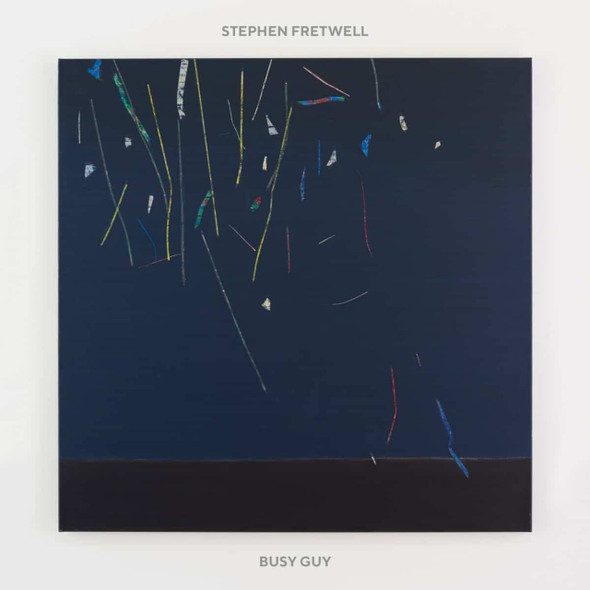Album Info
| Artist: | Can |
| Album: | Delay 1968 |
| Released: | Europe, 2021 |
Tracklist:
| A1 | Butterfly | 8:20 |
| A2 | Pnoom | 0:26 |
| A3 | Nineteen Century Man | 4:18 |
| A4 | Thief | 5:03 |
| B1 | Man Named Joe | 3:54 |
| B2 | Uphill | 6:41 |
| B3 | Little Star Of Bethlehem | 7:09 |
Info About Buying Vinyl From Our Record Store
- We are a small independent record store located at 211 High St, Preston in Melbourne, Australia (North of Northcote, between Thornbury & Reservoir)
- We buy and sell new and used vinyl records - if you have a collection you'd like to sell please click here.
- We ship Australia wide for a flat rate of $10 for standard shipping or $15 for express post.
- Free Shipping for orders $150 and over.
- You can also pick up your order in store, just select Local Pickup at the checkout.
- We also ship internationally - prices vary depending on weight and location.
- We ship vinyls in thick, rigid carboard mailers with a crushable zone on either side, and for extra safety we bubble wrap the records.
- In stock vinyl is usally shipped next business day, please check the availability field at the top of the product page to see whether the record is currently in stock or if it is available from the supplier as well as estimated shipping times.
- If you order an in stock item together with a pre order or back order (listed as available from supplier rather than in stock) then the order will be shipped together when all items arrive. If you would like the in stock items shipped first please place two separate orders or contact us to arrange shipping items separately.
- We are strongly committed to customer satisfaction. If you experience any problems with your order contact us so we can rectify the situation. If the record arrives damaged or doesn't arrive we will cover the cost of replacing or returning the record.
- If you change your mind you have 30 days to return your record but you must cover the cost of returning it to the store.
- You can contact our Melbourne record shop at (03) 9939 3807 or at info@funkyduckvinyl.com
- Happy Listening!
Description
There’s a special kind of thrill that comes from dropping the needle on Delay 1968 and hearing the first bars of Butterfly rumble out. It’s Can before the legend hardened, four young players and a New York poet making music in a West German castle, and you can hear the room in every scrape of guitar and every clipped hi-hat. These sessions were tracked in 1968 at Schloss Nörvenich with Malcolm Mooney on vocals, then shelved and finally released in 1981 by Spoon Records as Delay 1968. It’s not a footnote. It’s the blueprint, raw and humming with possibility.
Butterfly leans on Jaki Liebezeit’s taut pulse, Holger Czukay’s bass pushing a steady undertow while Michael Karoli saws out a guitar line that feels both ragged and precise. Irmin Schmidt threads organ and keys through the gaps, sometimes just a phrase, sometimes a swarm. Mooney doesn’t so much sing as declaim, a shuffle between mantra and street corner sermon. You can trace a lot of later post-punk vocal swagger back to him. The track stretches and breathes, proof that even this early the band knew how to let a groove mutate without losing its centre.
Thief is the one casual fans might recognise, a haunted shuffle that has been covered live by Radiohead and cited by plenty of musicians as a gateway to Can. The charm is in how little it tries to charm. Mooney locks into a storyteller cadence, the band moves like a single organism, and the edges are delightfully frayed. You can hear Czukay’s fascination with tape and texture, the same curiosity he and Schmidt carried from lessons with Karlheinz Stockhausen into the rehearsal room. Nothing here is clean in a modern sense. Everything is extraordinarily alive.
Little Star of Bethlehem is the record’s deep dive. It shimmers and lurches, equal parts lullaby and machine, and you can almost picture the group circling the idea in that castle, testing angles until something clicked. Uphill does what the title promises, a climb that never quite resolves, and it’s thrilling for that. Pnoom lasts barely a blink yet says plenty about where their heads were at, noise as punctuation, the joy of a good interruption. Nineteen Century Man and Man Named Joe show a band that could flip from angular agitation to a lean, garage-adjacent stomp without losing identity. Even the short instrumental Deo feels like a signpost, a hint at the collage instincts that would later shape their album flow.
Because it arrived years after Monster Movie, Tago Mago and Ege Bamyasi, Delay 1968 got tagged as an archival curiosity. Spend time with it and that label falls away. The performances are wired, the recording captures air and grit, and the chemistry is undeniable. Critics have long praised it as more than a vault sweep, and you can see why. It joins the dots between American protest chant, European avant garde and a rhythm section addicted to forward motion. Liebezeit is already a revelation, somehow both mechanical and humanly elastic. Karoli’s guitar has that metal filings quality he’d refine later, and Schmidt’s organ drones sketch the spacious Can universe in real time.
On vinyl, the record really speaks. The low end blooms, the percussion gets that woody crackle, and the room tone becomes another instrument. If you’re a crate digger in a Melbourne record store, keep an eye out for a clean copy. Spoon have kept Can albums on vinyl in circulation and reissues pop up. If the racks come up short, it’s easy enough to buy Can records online and grab a new pressing. Delay 1968 vinyl particularly rewards a loud play, side A straight through, then a breather before you flip it and let the groove pull you back under.
What lingers is how human it feels. There’s no grand studio sheen, just five people testing how far a song can stretch without snapping. It’s also a sharp reminder that Can were always more than a drummer’s band or a producer’s band. They were a conversation. Delay 1968 catches that conversation right at the start, still messy, already meaningful. If you’re building a Can vinyl shelf, don’t treat this as a completionist tick. Treat it like the missing chapter that makes the whole story read better, a document that shows where the spark came from and why it never quite went out. For anyone in vinyl records Australia circles, it’s the sort of album that justifies the format and the hunt, every crackle a thread back to that echoing room in 1968.







